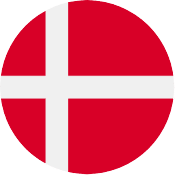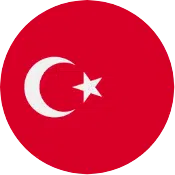German Language Facts
If you’re thinking about learning German it’s always good to know a little about the origins and history of the language you are learning. Here, Cactus Language offers up our most interesting German language facts:

5 Interesting German Language Facts
1. German is part of the West Germanic languages, along with English and Dutch
With what is today’s Germany being divided up into numerous small states for centuries, German was standardised primarily by its literature, as writers sought to be understood by as many readers as possible. As Germany’s unification started during the 19th century, standards were adopted. The Deutsches Wörterbuch, today’s largest German dictionary in existence, was begun by the Brothers Grimm in 1838.
2. German is spoken by 95 million native speakers worldwide
German is the European Union’s most widely spoken native language. German Sprachraum refers to the Central Europe German-speaking area, which includes Germany, Austria, Switzerland and Liechtenstein. It is also an official language in South Tyrol (Italy), Belgium and Luxembourg, and a minority language in Bosnia and Herzegovina, Czech Republic, Denmark, Hungary, Poland, Romania, and Namibia.
3. German is famous for its extensive use of long words
Some German words are so long that the longest German word is now obsolete: Rindfleischetikettierungsüberwachungsaufgabenübertragungsgesetz, meaning “the law concerning the delegation of duties for the supervision of cattle marking and the labeling of beef”, has been deemed too unpractical for bureaucrats.
4. German has its own unique words which can’t be translated in other languages
Like most languages. Useful examples include:
- Luftschloss: this word literally means “castle in the sky” and is used to describe someone’s unrealistic dream.
- Blaumachen: similar to the expression “Blue Monday”, this words means ditching school or work.
- Heimat: both a positive word and a very German concept, it describes the relationship between a person and his/her homeland.
5. Until the mid-20th century, German was written using a different script of the Latin alphabet
The script was called the Fraktur script. This form of Gothic script was introduced in the 16th century and remained in use until the Second World War.
How to book with Cactus
Select language
Simply select which language you would like to learn and from the box below and click lets go.
Take level test
This is a quick test to help you find the right course for your current level of knowledge.
Book your course
Use our simple online booking system to select your course.
Frequently asked questions
What will I learn?
Our Course Outlines give an overview of the content and learning framework of Cactus courses. Includes themes, grammar and vocabulary you can typically expect to cover. These are intended as a guide only. Language teachers may at times adapt the course content to suit the specific level, aims and interests of the class.
How do I know what level I am?
Are you unsure where to start or progress to? Then take our level test and read our level descriptions for guidance.
Do I receive a qualification or certificate?
At the end of your course you receive a certificate of participation. You will be able to be download it from your MyCactus account. This confirms the language and level of course you have taken. Our course levels are based on two internationally recognised systems. You will have a universally accepted reference for your studies. (Important: Please note that you must complete the end of course questionnaire sent to you to be able to get your certificate! You will receive the course questionnaire by e-mail at the end of your course.)
Do I need a course book?
You will need a course book to attend your course. Course books are not included in the course fees. We recommend that you buy your own course book separately before your course starts. We will let you know which course book you will require and advise where you can purchase this. Please note that a course book often covers more than one level. So if you progress to the next course, you may not necessarily need to buy a new book. Again, we will advise you of this at the time. The course book is chosen by our teachers and academic team. This is based on which book is most suitable for the level of the class whilst offering the most communicative approach.
Still have questions?
Sign up for our offers
Exclusive discounts on your course with Cactus directly on your inbox!


 German
German French
French Italian
Italian Spanish
Spanish Arabic
Arabic Cantonese
Cantonese Czech
Czech Croatian
Croatian Danish
Danish Dutch
Dutch English
English Greek
Greek Hebrew
Hebrew Hindi
Hindi Japanese
Japanese Korean
Korean Norwegian
Norwegian Polish
Polish Portuguese
Portuguese Russian
Russian Swedish
Swedish Thai
Thai Turkish
Turkish Ukrainian
Ukrainian